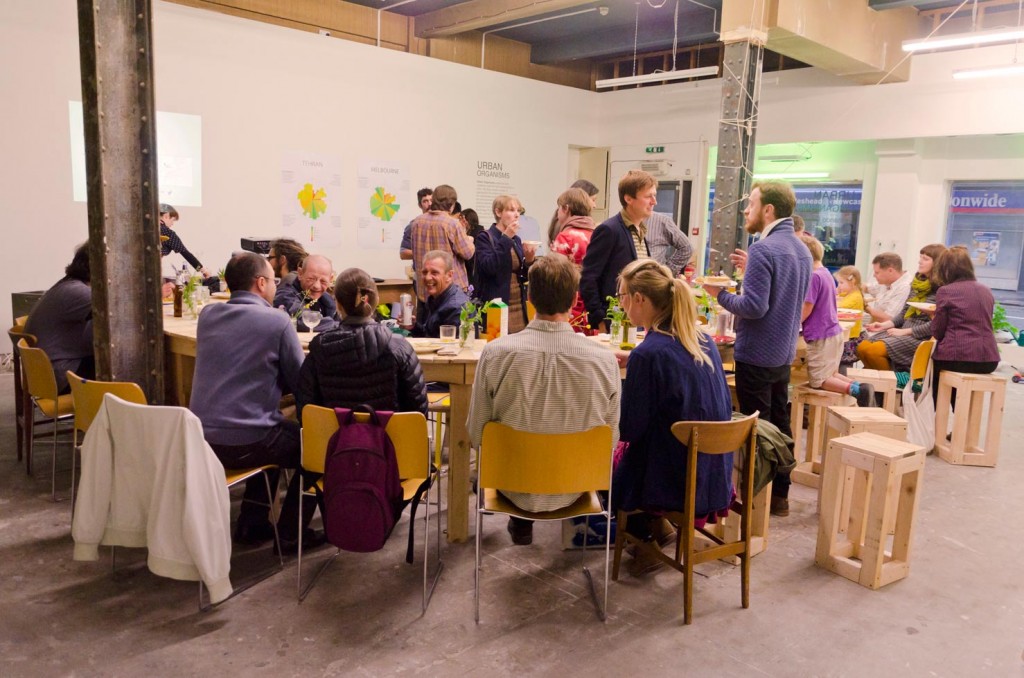Tackling the climate crisis
The cultural sector has a role to play in driving the change needed to respond to the climate crisis. But much has been overlooked in the conversation to date.

Cop26 might be over, but the climate crisis is far from abating. As 99.9% scientists agree human actions have caused the climate crisis, what is needed is not more scientific consensus, but deep societal change. However, a drive to merely reduce greenhouse gases to net zero is not enough.
Our current global and societal structures are built on the foundations of colonialism. The vast majority of countries classed as ‘developing’ are those where both people and natural resources were exploited by America and European nations. Aja Barber’s book Consumed provides an overview of how countries in the Global North continue to be enriched thanks to the ongoing use of ‘cheap’ labour and materials in the Global South. Our current economic model treats the planet’s finite resources as endless and disposable, where their only value is their monetary market value. Climate breakdown and environmental degradation are the inevitable consequences, with as Dalia Gebrial and Harpreet Kaur Paul note “increased likelihood and severity of future pandemics”.
Countries in the Global South are most vulnerable to this changing climate, despite having done least to cause the crisis. Research in the US has found that sites for waste disposal are far more likely to exist in poor communities and communities with a high percentage of people of colour. In the UK, research has demonstrated that communities of colour are disproportionally affected by poor air quality. Climate change is racist, and climate justice is social justice.
So where should arts and cultural organisations sit within this? Culture has the power to shape society, and I agree with Alison Tickle that art equals emotion, and this is the driver to action that is currently under utilised. However, we need structural changes to tackle this crisis. We need to be re-thinking business plans, organisational governance, strategies and policies. We need to be using the power of cultural organisations to (re-) imagine an alternative future, where people and planet are valued, not for the economic worth, but for their inherent importance. Working practices need to slow down, encouraging thoughtfulness through quality not quantity. Get the scaffolding right, and we can support exciting and imaginative programmes of work that demonstrate positive ideas and provide genuine potential solutions to these problems.
So where to start? Firstly, environmental sustainability can’t be something stuck on the side of a business plan – it needs to be deeply embedded in all aspects of an organisation’s operations, with understanding and buy-in from all staff up to Board level. As Martin Hylton, founder and CEO of Gateway Studio said at a recent Culture Against Racism event: “Polices that don’t align to an organisation’s values become a barriers to change”. Organisations need to be demonstrating solutions not just in the work that is programmed, but in the way they operate.

Economics also feeds into this. Donut Economics is a theory developed by self-described renegade economist Kate Raworth from Oxford University. Put simply, we need to find ways to structure our economic systems so that we don’t ‘overshoot’ our planetary boundaries, whilst also ensuring minimal human needs are met. As non-profits, many arts organisations may already align with these ways of thinking, but this approach should also apply to supply chains; to ethical fundraising policies; to reducing consumption; to merchandise & food sales; to internal training; to hiring processes, staff pay, contracts, working hours & pensions; and to programming.
We need a variety of voices to develop policies that are robust and fit for purpose – work with your people & co-develop these with your staff and audiences. Diversity here is key – we need more voices in the room, but remember that not everyone has the time and financial ability to join a Board. Find the voices you’re missing, then find appropriate ways of working with people and paying for their time and expertise. I recently took part in an arts & climate Board workshop sessions with Strike A Light which did just this – offered to pay people to bring their knowledge and lived experiences to the conversation about how an arts organisation could operate on this changing planet.
Gathering data is important – but for arts organisations simply measuring reductions in direct greenhouse gas emissions limits the scope of what the sector can achieve. We need to be measuring the wider social impact our organisations have, how our networks and collaborations build communities, and how these conversations and actions lead to ways of re-thinking how our society can work, with a positive environmental impact. Gather the data the changes in policies bring and how this affects your programme, and use this to tell the story of your organisation.
All arts organisations are different, and actions relevant for a large visual arts gallery won’t necessarily be appropriate for a small touring theatre company or a bi-annual festival. It’s therefore important to be honest and transparent with audiences, partners and stakeholders about what you want to achieve and a timescale in which to do it. Make a plan, test, re-evaluate and continue. Keep the conversations open. Avoid greenwashing, and as was also pointed out at Strike A Light’s event, don’t youth-wash either. Mistakes happen – the important thing is to own them and learn from them. To paraphrase an event I convened recently – there ain’t no culture on a dead planet. This is an emergency, and we need to be acting accordingly.
First published at www.artsprofessional.co.uk, 13th January 2022


Comments
Tackling the climate crisis — No Comments
HTML tags allowed in your comment: <a href="" title=""> <abbr title=""> <acronym title=""> <b> <blockquote cite=""> <cite> <code> <del datetime=""> <em> <i> <q cite=""> <s> <strike> <strong>